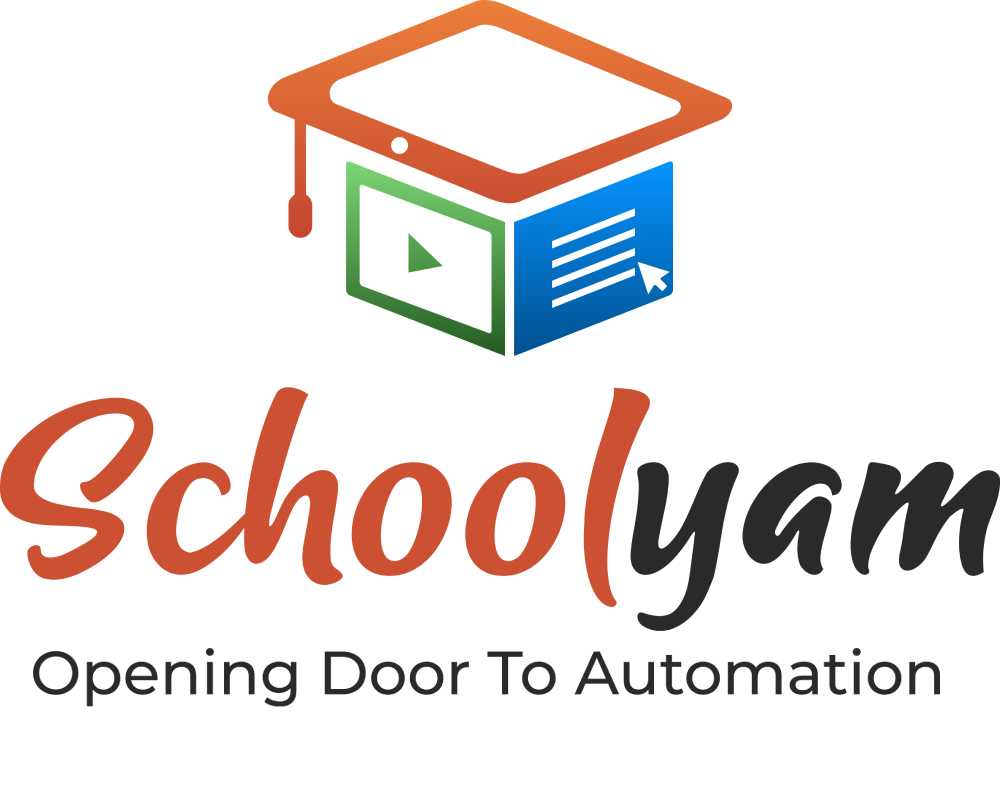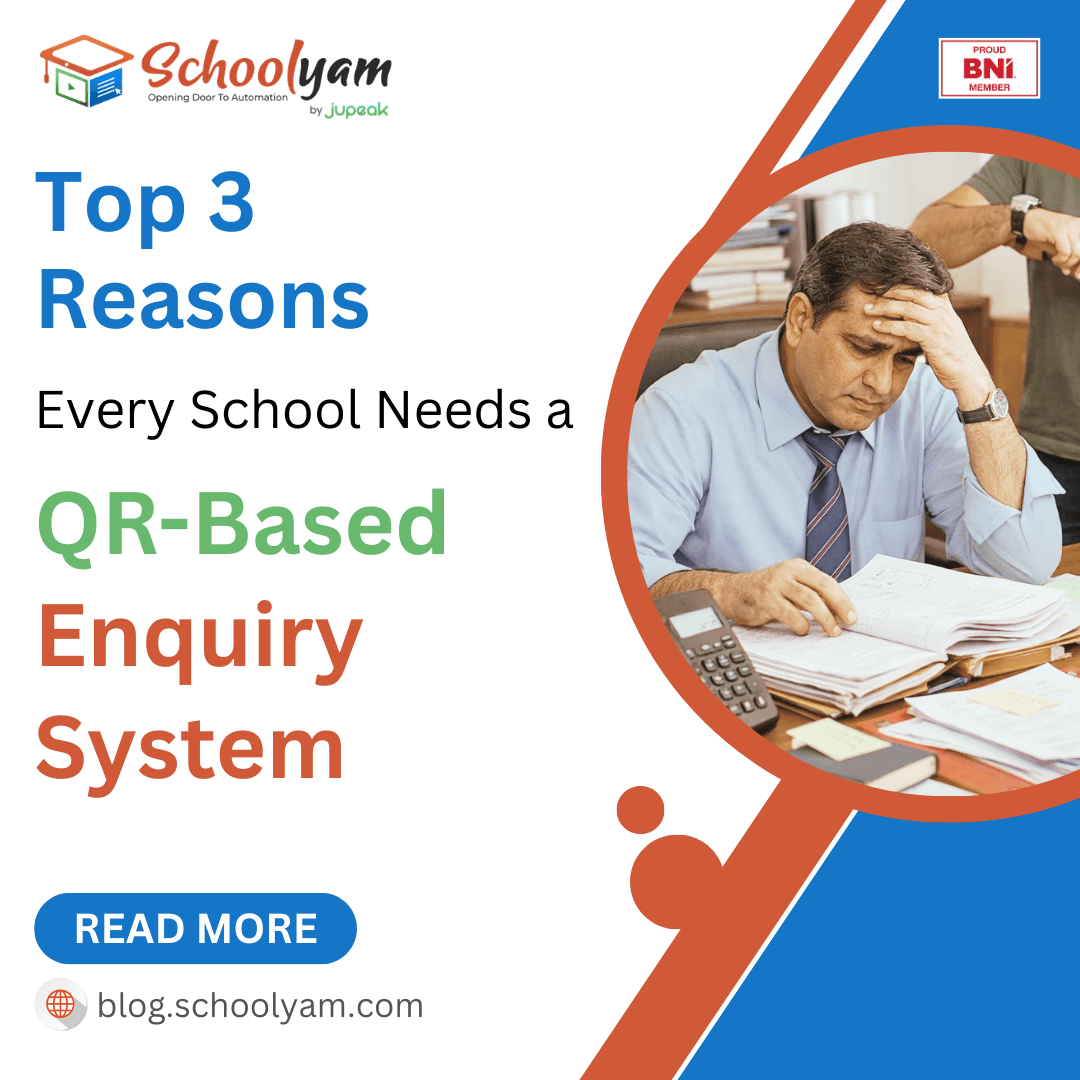
Introduction:
In today’s rapidly evolving technological landscape, the traditional methods of teaching are no longer sufficient to meet the challenges presented by modern education. With the integration of advanced technologies, such as School Management Software, teachers and educators can enhance the learning experience and streamline administrative tasks. Let’s explore how a School ERP system can significantly improve Teacher Productivity, focusing on the four essential C’s: Collaboration, Communication, Creative Thinking, and Critical Thinking.

The Four C’s to Enhance Teacher Productivity :
Collaboration: School ERP systems facilitate collaboration among teachers, students, and parents. This interconnected platform allows seamless sharing of information, resources, and updates, fostering a collaborative learning environment.
Communication: Effective communication is key to successful teaching. School Management Software enables quick and efficient communication between teachers, students, and parents. Instant messaging, emails, and discussion forums create a holistic space for fostering better teacher-student and teacher-parent relationships.
Creative Thinking: By automating routine tasks, teachers can dedicate more time to creative lesson planning and innovative teaching methods. School ERP systems provide tools and templates to make the creative aspect of teaching more accessible and enjoyable.
Critical Thinking: Encouraging critical thinking in students is crucial. School ERP systems can assist teachers in designing assignments that promote critical thinking skills. Additionally, features like result management and performance evaluation contribute to a more comprehensive understanding of students’ strengths and areas for improvement.
Tips to Streamline Time-Consuming Tasks:
Forecast Planning: Implementing a weekly or bi-weekly planning strategy helps teachers organize their tasks efficiently and reduces stress from hectic schedules.
Schedule Break Times: Structured break times provide teachers with the opportunity to recharge and refocus, ensuring they can manage tasks more effectively during work hours.
Make Personalized Comments: Utilizing personalized stamps for common feedback can significantly reduce the time spent on writing repetitive comments on assignments.
Use Templates: Creating templates for routine tasks, such as weekly newsletters or student feedback, helps maintain consistency and saves time on repetitive tasks.
Extension Works for Students: Assigning extension tasks to students before each session can help them prepare, allowing teachers to streamline lesson planning.
Organize Your Desk: A well-organized workspace contributes to a more productive teaching environment. Categorizing books, assignments, and materials helps teachers locate resources quickly.
Foster Responsibility in Students: Encouraging students to take on responsibilities, such as handing out papers or supporting their peers, not only lightens the teacher’s load but also fosters a sense of responsibility in students.
Ways School ERP Enhances Teacher Productivity :
Attendance Management: Automated attendance recording through School ERP systems simplifies the process, allowing teachers to focus on more meaningful aspects of teaching. Attendance records can be reviewed with just a click.
Effective Communication: The integrated communication features in School Management Systems create a cohesive space for teacher-student and teacher-parent communication, eliminating communication barriers.
Result Management: Streamlining result management, School ERP systems enable quick score recording and report card generation. This ensures timely sharing of student assessments with parents and students.
Library Management: Efficient library management features in School ERP systems enable teachers to quickly check the availability of books, saving time on manual searches.
Monitor Personal Employee Details: Accessing personal information becomes effortless with School ERP systems, allowing teachers to focus on their core responsibilities rather than spending time on administrative tasks.
Assignment Management: Uploading assignments and tasks through School Management Software simplifies the delivery process, notifying both parents and students. Teachers can also set reminders for submission deadlines.
Conclusion:
School ERP systems play a pivotal role in enhancing Teacher Productivity by streamlining administrative tasks and promoting a collaborative and innovative teaching environment. By adopting these technological solutions, educators can dedicate more time to meaningful interactions with students and focus on delivering high-quality education. Smart School emerges as an ideal choice for managing educational institutions effectively. If you found this article informative, feel free to share your thoughts in the comments below. Smart School aims to be your go-to solution for seamlessly managing schools, colleges, and training institutes.
Revolutionizing Education: Boosting Teacher Productivity with School ERP.




One thought on “Boosting Teacher Productivity with School ERP: A Comprehensive Guide”